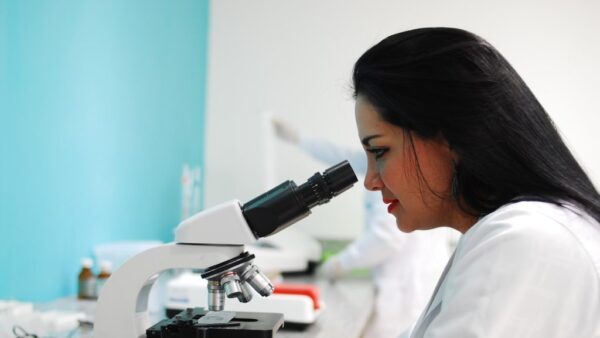Industry News is geared to seed professionals and delivers the people, industry, business and product news you need to know. Submissions are welcome. Email us at news@issuesink.com.
People News
Legacy Seeds has announced that Andrew Heath has been hired for the role of western Wisconsin district sales manager. Heath will assume the responsibilities of Nina Holte, who has taken on the role of agronomy services manager for Legacy Seeds. Kyle Govin, who is currently attending UW River Falls, has been offered a summer internship and will assist the Legacy team of experts throughout the summer. Ryan Saunders has been hired as the company’s new warehouse manager and Collin Durrant has joined the Legacy team in the role of packaging lead/general warehouse.
AgReliant Genetics has announced that Chris Clucas has joined the company as director of northern breeding. Based at the company’s Kirkland, Ill., research facility, Clucas will oversee the company’s early-season corn product portfolio. Benzon Lorenzana has been hired as the company’s director of plant breeding technology. Lorenzana will manage the discovery and development of new plant breeding technologies and techniques to further advance the company’s corn research efforts. Craig Kleinschmidt has been promoted to director of southern breeding. Kleinschmidt will work from the Kirkland research station serving as the station manager and maintain his breeding program. Kleinschmidt will direct the company’s full-season breeding team.
In order to manage the growing business and to take advantage of new opportunities, the board of directors at Royal Barenbrug Group has been expanded. John Thijssen has been appointed to the board effective immediately. In this position, Thijssen is responsible for the business in the Northern Hemisphere: Europe, the United States and China. Thijssen, who has been with the Barenbrug Group since 1994 and has held the position of CEO of Barenbrug USA for the last eight years, will initiate and execute strategic alliances in the Northern Hemisphere.
Dow AgroSciences has named Nikki Hall its U.S. portfolio marketing leader for cereals and rice and Justin Stewart its product manager for cereal herbicides. Hall will lead the business management teams for cereals and rice products and will also be accountable for the company’s growth goals in these markets. As the new product manager for cereal herbicides, Stewart is responsible for leading product development, placement, pricing and promotions in the winter wheat, spring wheat and durum market segments.
Bayer CropScience has announced that Rüdiger Scheitza, head of strategy and business management and labor director has retired after 31 years of service. The current function of SBM will be split into two separate units—strategy and business management. The unit strategy will be headed by Mathias Kremer, who is currently head of seeds at Bayer. The unit business management will be headed by Gavin Marchant, currently Bayer’s country head of Japan. Achim Noack, executive committee member and head of product supply, will take over the responsibility as labor director in addition to his current duties. Frank Terhorst, responsible for fruits and vegetables and insecticides, will succeed Kremer as head of seeds.
Product News
Syngenta has launched Clariva, a proprietary seed treatment nematicide based on the Pasteuria technology acquired in 2012. Clariva consists of naturally occurring soil bacteria with a unique, direct mode of action on nematodes, which cause significant damage to all major agricultural crops. “Soybean growers, in particular, have long been searching for additional tools to manage the widespread cyst nematode problem, which in the U.S. alone causes more than a billion dollars of annual yield losses. Clariva will take nematode control to a new level and reinforce our global leadership in seed treatment innovation,” says John Atkin, Syngenta’s chief operating officer. Clariva will be available in the United States for the 2014 growing season. Further worldwide registrations across major crops are planned.
Floragenex has launched a new, tiered system of genomic services to help better serve the expanding genotyping by sequencing market. The lineup creates three Floragenex service arms: Discovery, Genotyping and Analytics, each addressing major customer needs in genomics research. Under the new arrangement, Floragenex Discovery will provide expertise in SNP marker development, Genotyping will support clients interested in genotyping solutions using next-gen DNA sequencing while Analytics will develop low-cost bioinformatics tools.
Grain and forage sorghum growers in the U.S. Great Plains now have additional seed options thanks to a new distribution agreement between Alta Seeds and Eastern Colorado Seeds LLC. Alta Seeds is the premium seed brand of Advanta US, the leading provider of sorghum genetics in North America. Eastern Colorado Seeds, based in Burlington, Colo., has seed salesmen covering eight states, including Colorado, Kansas, Nebraska, Wyoming, Oklahoma, Texas, New Mexico and Utah. Eastern Colorado Seed will offer the full Alta Seeds lineup of forage and grain sorghum hybrids, including the highly productive brachytic forage sorghums.
Business News
Vilmorin & Cie and KWS SAAT AG have obtained authorization from the European Commission for their 50/50 joint venture Genective. The authorization is a key step in enabling the two companies to intensify their research collaboration, with the first traits expected to be available for purchase in the United States within three years. Vilmorin and KWS founded Genective in order to focus their efforts on first-generation corn traits. The traits will enable each of the two partners to globally market GM corn seeds that include their own technologies to meet the specific demands of agricultural markets for diversification of sources of transgenic traits.
Novozymes has signed an agreement to acquire TJ Technologies Inc., based in Watertown, S.D. The acquisition is an important step in building Novozymes’ business within bioagriculture, in the case of TJ Technologies specifically within the bioyield enhancement segment. “TJ Technologies is a front-runner in bioyield enhancers, and this acquisition will further underpin Novozymes’ position,” says Thomas Videbæk, executive vice president of Novozymes and head of business development. “Combining our existing products with TJ Technologies’ strong and proven portfolio, brands and regional market coverage will strengthen the joint company’s commercial position in important crop markets.”
DuPont has opened its Johnston Innovation Center in Iowa, the company’s second innovation center in the United States, focusing on the company’s unique integrated science capabilities across the food, agriculture and energy value chains. “The key is to quickly connect our integrated science to the market. The innovation centers enable DuPont to harness its global science capabilities to create local solutions that are tailored to meet the most pressing market needs. The Johnston location provides a unique environment for collaboration among more than 10,000 DuPont scientists and engineers with customers, government officials, academics and business partners around the world,” says Ellen Kullman, DuPont’s chair and CEO.
Bayer CropScience has opened a new wheat breeding station located near Paris, France. The center is part of Bayer’s growing network of wheat breeding stations worldwide, located in Australia, Canada, Germany, Ukraine, the United States and now France. The new center will focus on improving yields, addressing challenges with respect to water-use efficiency and heat tolerance and improving resistance to wheat fungal diseases. The first commercial varieties from the breeding program at this station are expected by the end of
the decade.
Industry News
A team of researchers from the University of California, Davis and Kansas State University has identified a gene that enables resistance to a new race, or strain, of stem rust—a disease that is causing large wheat yield losses throughout Africa and Asia and is threatening global food security. By transferring this gene to commercial wheat varieties, researchers say wheat breeders will have a distinct advantage in controlling the epidemic. “A new race of a wheat disease, called stem rust Ug99, has been spreading over large distances since 1999, threatening important wheat production areas of the world,” says Jorge Dubcovsky, a wheat geneticist at UC Davis. “This study identifies a gene called Sr35 that confers near-immunity to this new race.” The research team will now work to identify which combination of resistance genes can deliver a more durable resistance against the disease. Findings from the study have been published in the journal Science Express.
A new African Plant Breeding Academy, designed to train a generation of plant breeders who will help improve the nutritional value of indigenous African crops, has been launched by the University of California, Davis in collaboration with the African Union’s New Partnership for Africa’s Development and the African Orphan Crops Consortium. The African Plant Breeding Academy will enable plant breeders to enhance the nutritional value of these key crops through breeding and application of genomic tools.
The International Service for the Acquisition of Agro-Biotech Applications has added another feature to its online GM Approval Database allowing users access to useful information on approved biotech crop varieties. The new section of the database provides links to more detailed descriptions of genetic modification events, risk assessment documents, regulatory decisions, expert opinions and methods of detecting events or genetic elements. The database currently holds information for 328 unique events representing 26 biotech crops with regulatory approval in at least one country for food/feed use or commercial cultivation.
Genetically modified crops have been developing rapidly worldwide in recent years. However, issues surrounding low level presence of GM products in shipments is emerging due to asynchronous approvals among importing and exporting countries and low tolerance levels for adventitious presence of GM products unapproved by importing countries. Researchers from the Center for Chinese Agricultural Policy of the Chinese Academy of Sciences provided insights into the definition of LLP, emphasizing its specificity and inevitability from a technical perspective. Findings illustrated that mutual trust and information exchange mechanisms should be built up among importing and exporting countries. Meanwhile, it is critical to shorten the time required to receive import safety approval and set up the science-based LLP threshold. The article has been published in the journal China Biotechnology.













